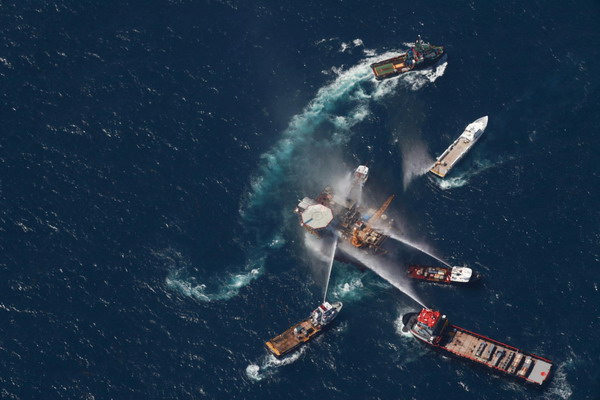Asia-Pacific
Oil platform explodes off US coast; crew rescued
(Agencies)
Updated: 2010-09-03 09:41
 |
Large Medium Small |
|
|
The captain of the boat that rescued the platform crew said his vessel was 25 miles (40 kilometers) away when it received a distress call Thursday morning from the platform.
The Crystal Clear, a 110-foot (34-meter) boat, was in the Gulf doing routine maintenance work on oil rigs and platforms. When Capt. Dan Shaw arrived at the scene of the blast, the workers were holding hands in the water, where they had been for two hours. They were thirsty and tired.
Crew members were being flown to a hospital in Houma. The Coast Guard said one person was injured, but the company said there were no injuries. All of them were released by early Thursday evening.
Jindal met with some of the survivors. He would not identify them except to say most were from Louisiana.
Environmental groups and some lawmakers said the incident showed the dangers of offshore drilling, and urged the Obama administration to extend a temporary ban on deepwater drilling to shallow water, where this platform was located.
"How many accidents are needed and how much environmental and economic damage must we suffer before we act to contain and control the source of the danger: offshore drilling?" said Rep. Frank Pallone, a New Jersey Democrat.
Mike Gravitz, oceans advocate for Environment America, said President Barack Obama "should need no further wake-up call to permanently ban new drilling."
There are about 3,400 platforms operating in the Gulf, according to the American Petroleum Institute. Together they pump about a third of the America's domestic oil, forming the backbone of the country's petroleum industry.
On Friday, BP began the process of removing the cap and failed blowout preventer from its ruptured well, another step toward completion of a relief well that would seal the leak permanently. The Deepwater Horizon exploded April 20, setting off a three-month leak that totaled 206 million gallons (780 million liters) of oil.




